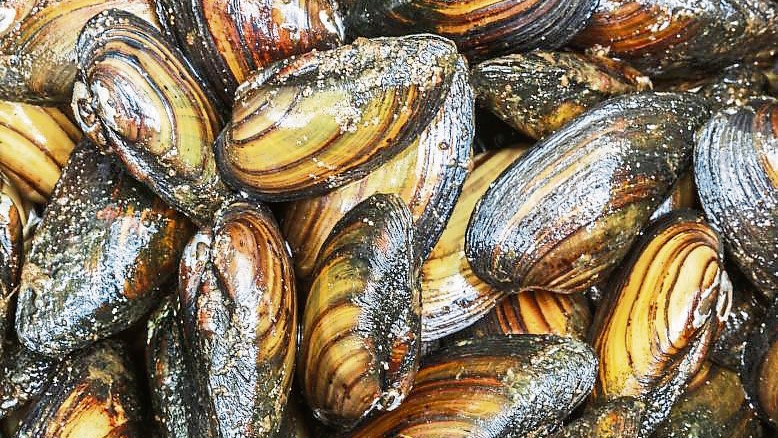THE presence of the zebra mussel is still taking its toll on local waterways.
Invasive alien zebra mussels have been identified in the Erne system since the 1990s, however recent surveys show their numbers and the sites where they are found have increased significantly, which now includes the Lower Bann.
The zebra mussel is a prolific mollusc which filters water, making it clearer.
This allows other species to grow and disrupt local ecosystems. Their presence upset the natural functioning of lake systems and result in a drop in fish numbers.
“In large, complex water bodies such as the Erne system, it is currently not possible to eradicate the zebra mussel once it has become established without causing more serious environmental harm,” a spokesman for the Department of Agriculture, Environment and Rural Affairs (DAERA), said.
“The Northern Ireland Environment Agency’s focus is on the prevention of further spread of zebra mussels, promoting the practice of good biosecurity with water users, including the ‘Check, Clean, Dry’ campaign.”
DAERA is also working with the Agri-Foods and Biosciences Institute (AFBI) to develop a stocking protocol, compliant with the Wildlife (Northern Ireland) Order 1985, which may allow for stocking in the future. No decision has been taken regarding whether Public Angling Estate waters will be stocked in 2024.
Fermanagh and Omagh District Council said they were aware that the zebra mussel is prevalent in Lough Erne.
“As the Zebra Mussels attach to hard surfaces including hulls of boats and equipment, the Council actively encourages the public to follow the ‘Check Clean Dry’ principles with boats and water equipment before entering or moving between water bodies,” a Council spokesperson said.
The Council regularly raises awareness of invasive species such as Zebra Mussels and works in partnership with organisations such as the Lough Erne Landscape Partnership and NIEA Invasive Non-Native Species (INNS) Team to deliver training and awareness-raising events.
It also encourages the public to report incidents of zebra mussels to the Centre for Environmental Data and Recording or via the iRecord App to help manage the spread.
The zebra mussel is also believed to have contributed to the conditions that allowed potentially toxic blue-green algae to bloom in Lough Neagh recently.
Under the Wildlife Order 1985, it is an offence to release invasive species into the wild.
To read more.. Subscribe to current edition
Receive quality journalism wherever you are, on any device. Keep up to date from the comfort of your own home with a digital subscription.
Any time | Any place | Anywhere









